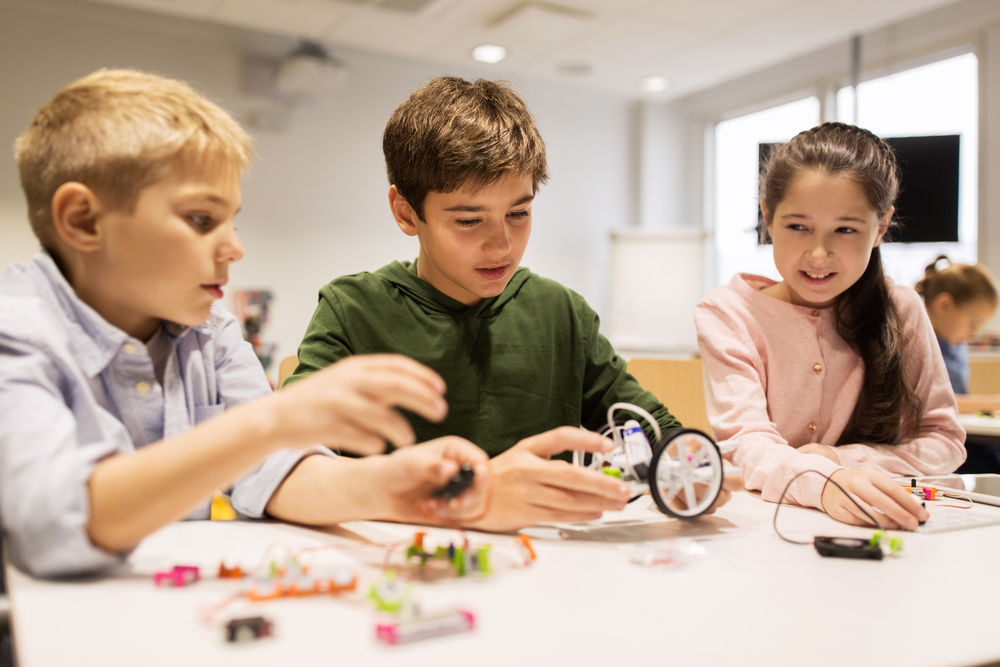Problem-solving abilities Easy Math Worksheets for Ages 3-7
7 filtered results
-
From - To
Welcome to our "Problem-Solving Abilities Easy Math Worksheets" designed specifically for children ages 3-7! These engaging worksheets focus on developing critical thinking and reasoning skills through fun, age-appropriate math problems. Our resources encourage young learners to explore numbers, patterns, and logical reasoning while reinforcing foundational math concepts. With colorful illustrations and simple instructions, these worksheets promote independent learning and confidence in young minds. Parents and educators can easily integrate these activities into home or classroom settings, making math enjoyable and approachable. Foster your child's problem-solving abilities today with our thoughtfully crafted worksheets, ensuring a solid math foundation for future success!
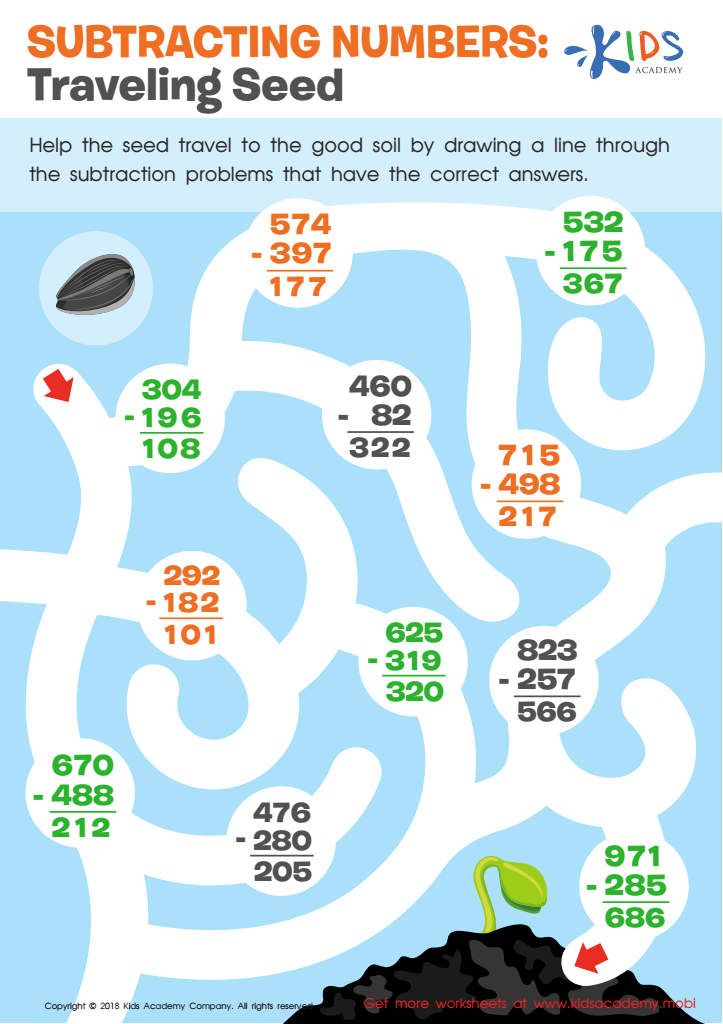

Subtracting Numbers: Traveling Seeds Worksheet
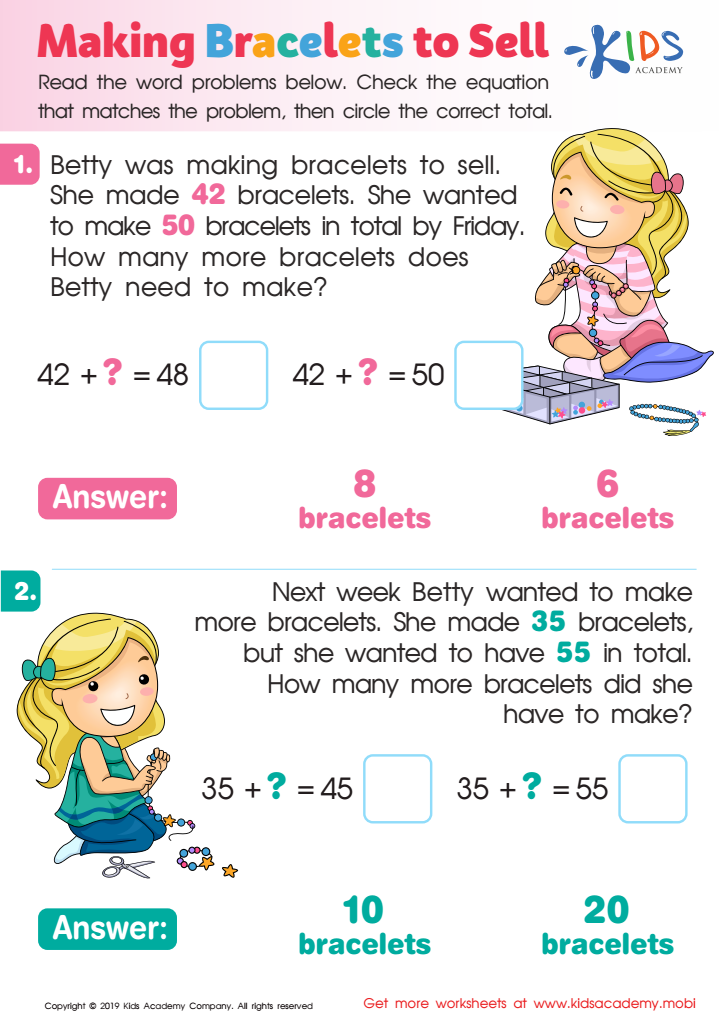

Making Bracelets to Sell Worksheet
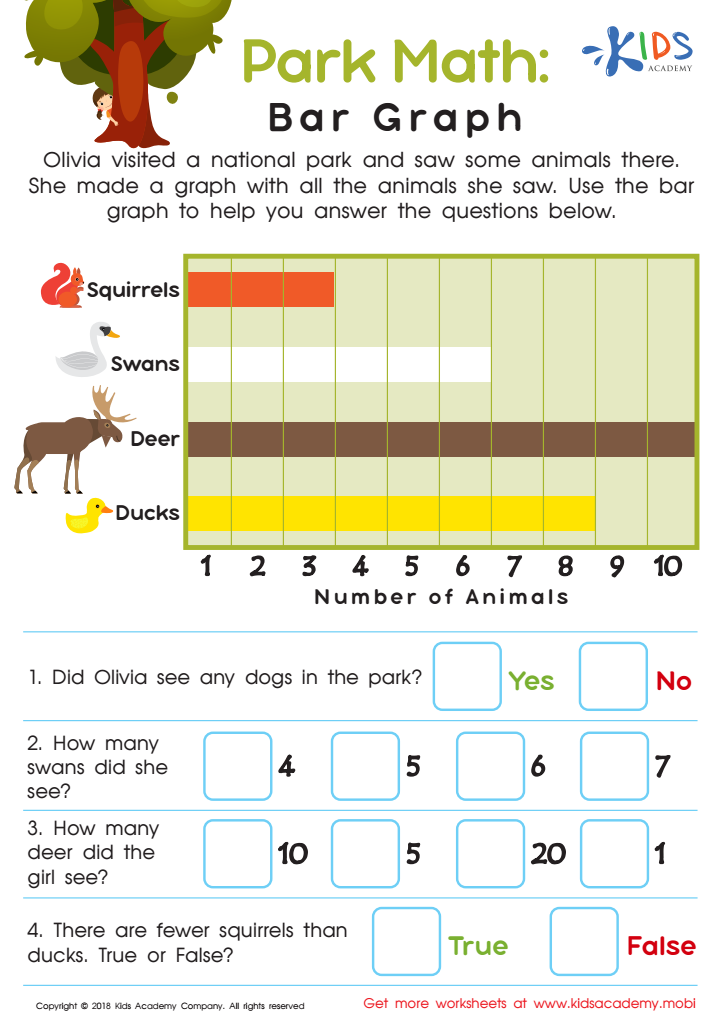

Park Math: Bar Graph Worksheet
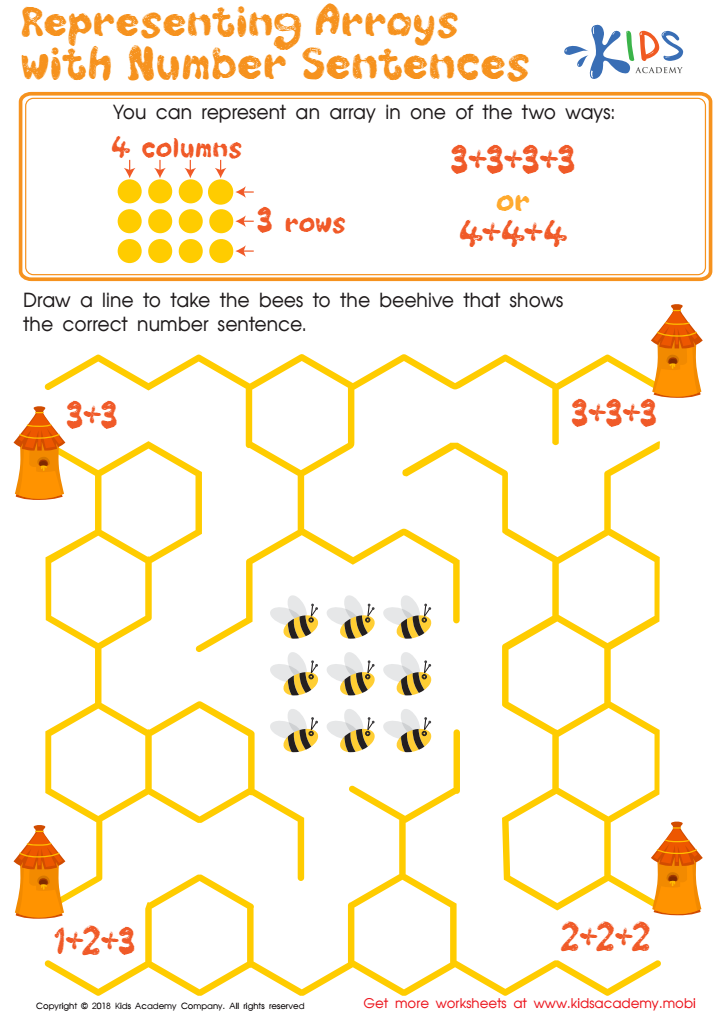

Representing Arrays with Number Sentences Worksheet
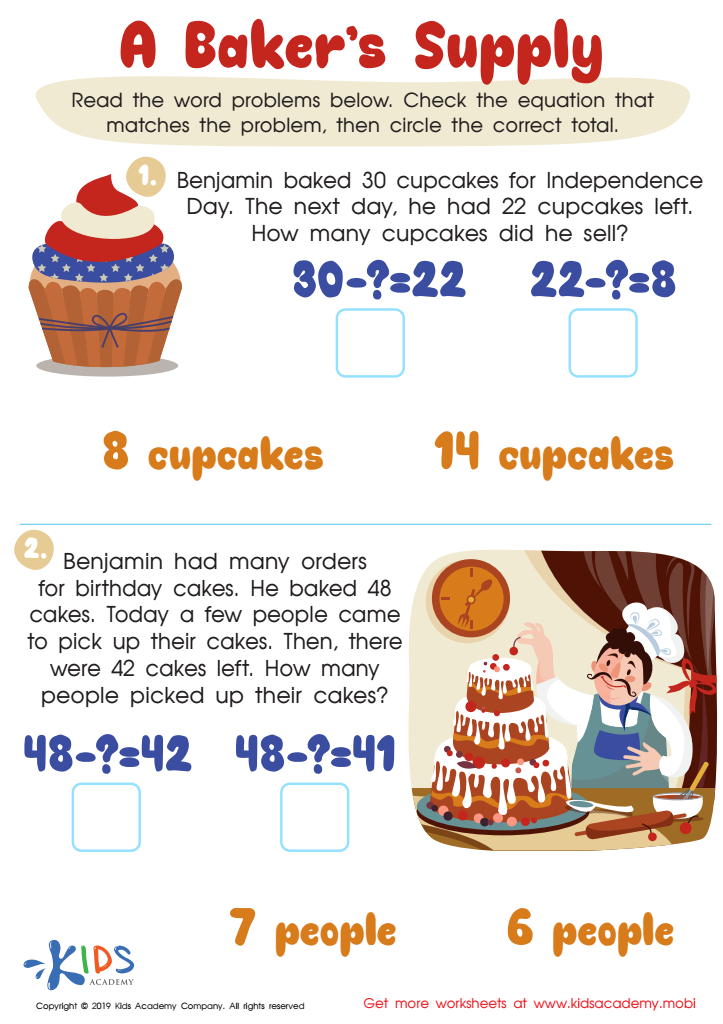

A Baker's Supply Worksheet
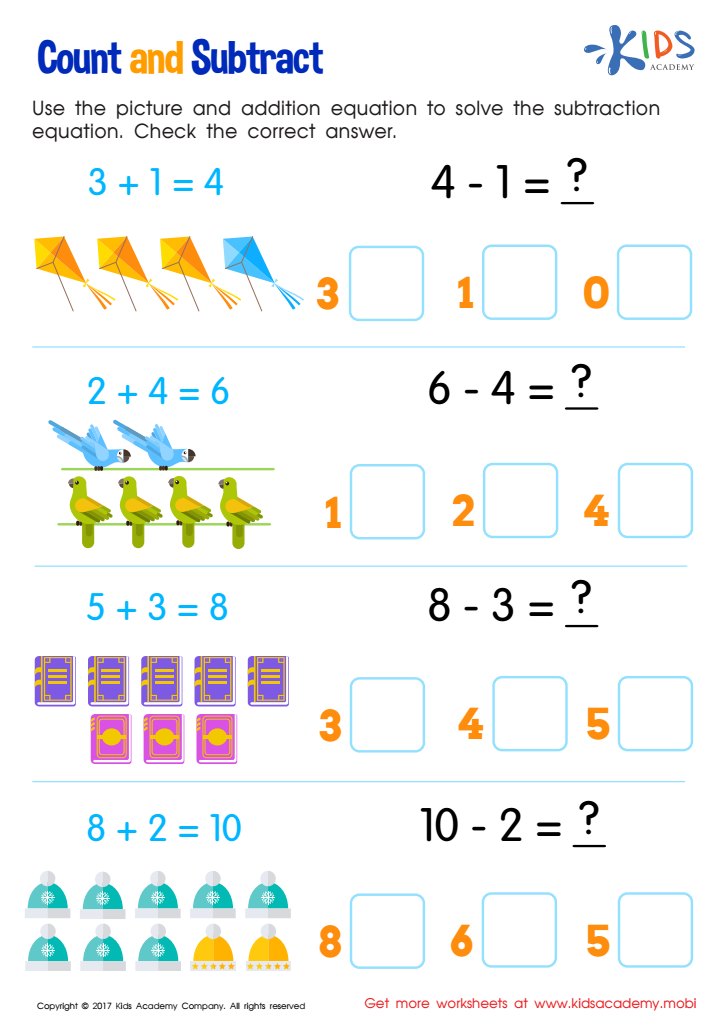

Count and Subtract Worksheet
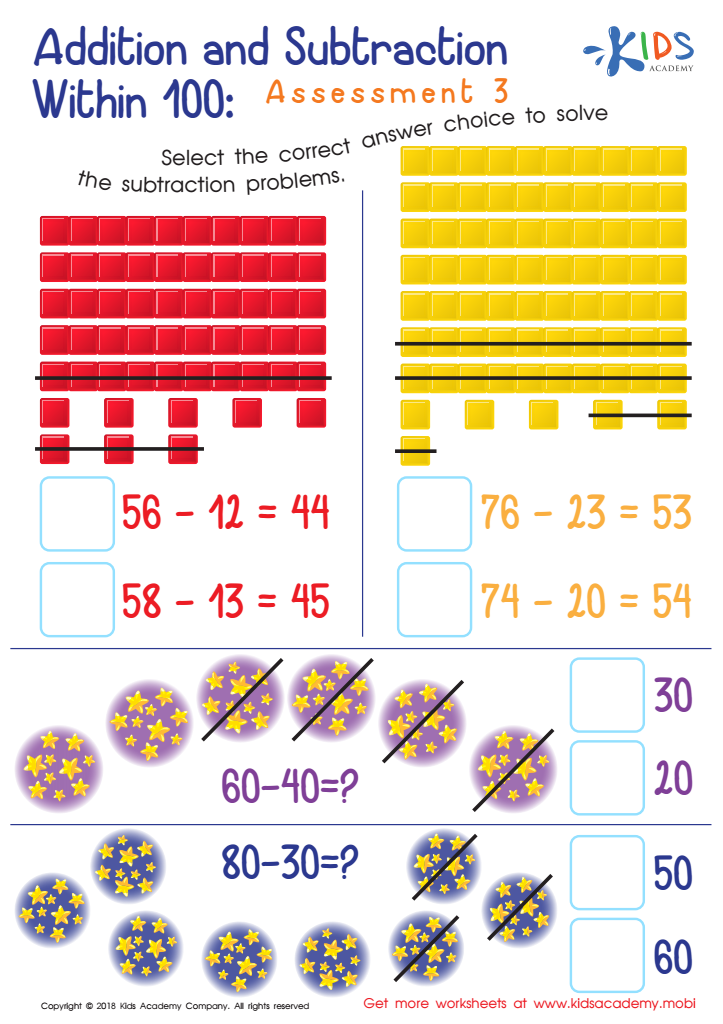

Addition and Subtraction Within 1: Assessment 3 Worksheet
Problem-solving abilities are crucial for children aged 3-7 as they form the foundation for future learning and everyday life. During this developmental stage, children are naturally curious and eager to explore concepts like numbers, shapes, and patterns through 'Easy Math.' Building problem-solving skills in early math not only enhances their cognitive development but also fosters critical thinking and creativity.
Parents and teachers should prioritize problem-solving in math because it enhances children’s analytical abilities, encouraging them to think through challenges in a structured way. For example, when children learn to solve simple math problems, they develop resilience and adaptability, vital skills for lifelong success.
Furthermore, engaging in problem-solving activities helps children build a positive relationship with math, reducing anxiety and fostering confidence. Early exposure to math concepts through fun games and hands-on activities can spark a love for learning, making them more likely to pursue advanced topics later in life.
Finally, by nurturing these abilities during formative years, parents and teachers are equipping children with essential tools that translate beyond academics—preparing them for real-world challenges and enhancing their overall problem-solving prowess. Ultimately, investing in these skills is an investment in a child's future.
 Assign to My Students
Assign to My Students





